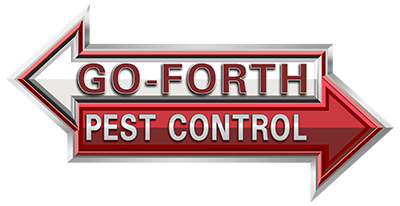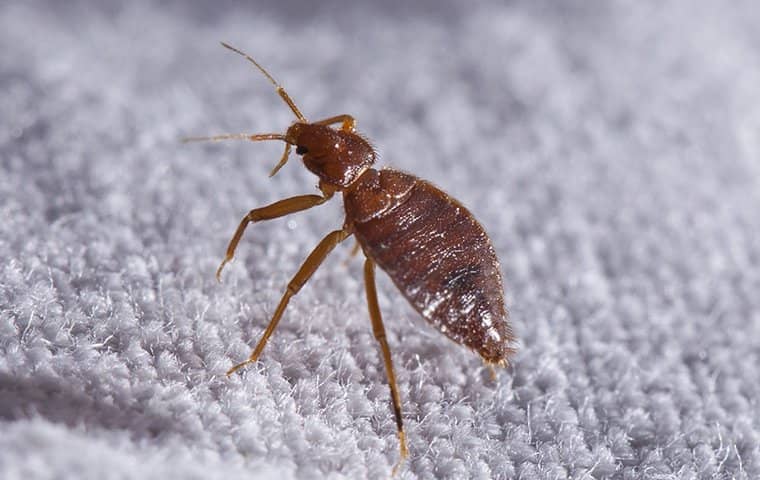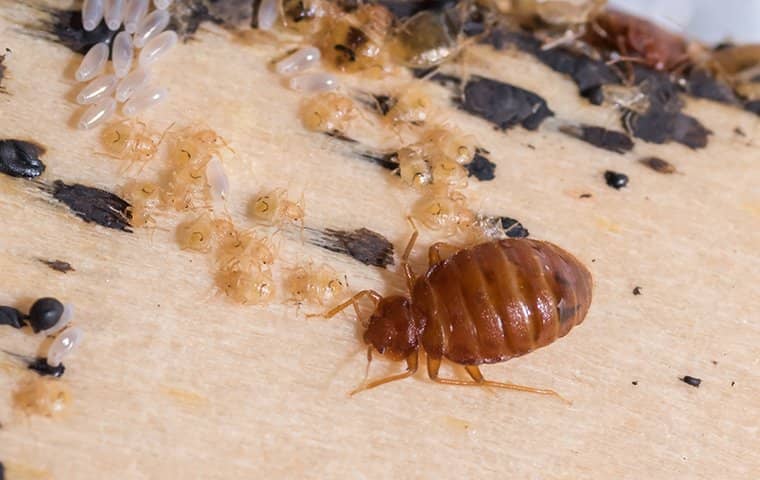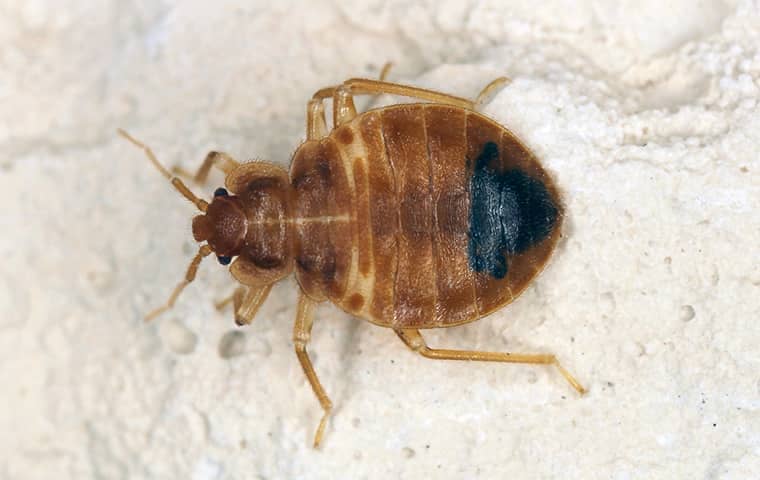When rodents cause trouble, it is time to call a professional. Why is professional rodent control a must? It has to do with how rodents in Columbia behave. Every rodent has a set of teeth capable of chewing through a wooden board, making them a formidable threat to your home and difficult to keep these animals out of your house.
Join us as we take a close look at five common rodents in our area, how they behave in your home, the best way to get rid of them, and how professional rodent control services can give you long-lasting protection. If you have questions and want to speak directly with a pest professional, the Go-Forth Pest Control experts are here if you need us. We can also tell you all about professional rodent control in Columbia and schedule a service visit. Give us a call or jump to our contact page for assistance.
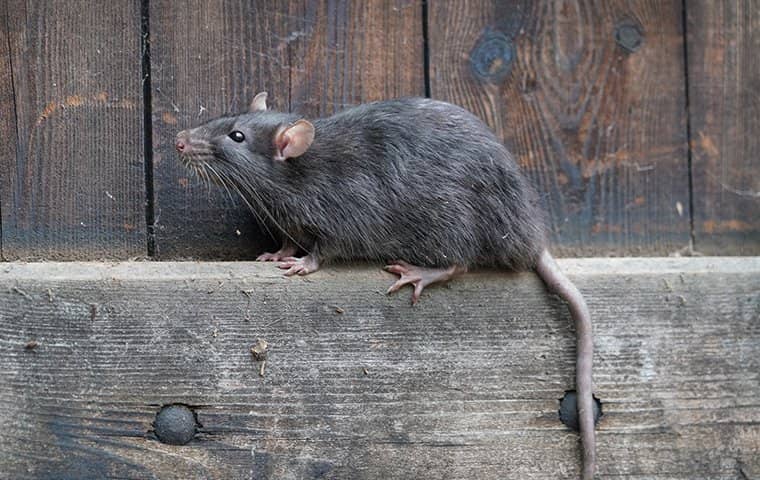
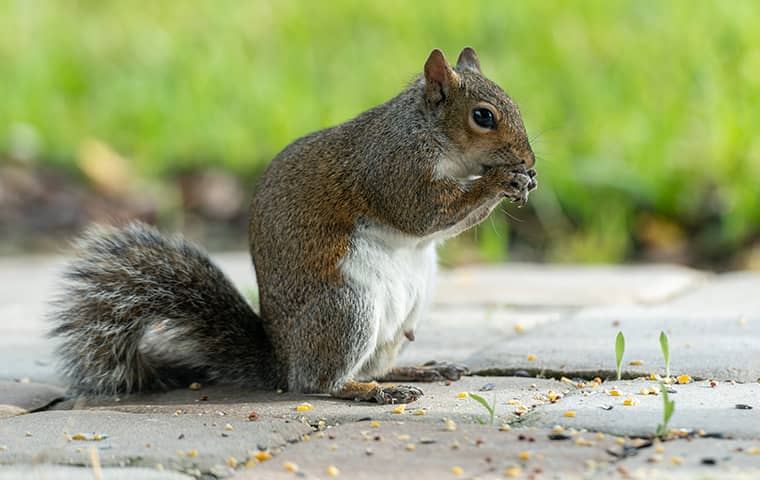
How To Identify Common Types Of Rodents In Columbia
There are three kinds of rodents that commonly infiltrate our homes—rats, mice, and squirrels. If you're not familiar with them, the simple descriptions that follow should help. We'll also share a few important facts about each one so you know what to expect.
Roof Rats:
A roof rat is entirely black except for its pink tail. It has the long body, thick tail, and blunt nose of a rat. You'll find roof rats scaling trees, living in tree nests, and checking out your roof—if you let them.
Norway Rats:
A Norway rat is brown with a white underbelly. It looks a bit like a giant field mouse but has the rat features mentioned above. You'll find these rats digging holes in the ground and living underneath structures in your yard. They are particularly fond of establishing burrows under junk piles.
Field Mice:
A field mouse, or deer mouse, has the coloration of a deer. It can look tawny on top or more of a brown color, like a Norway rat. Its underside is white. A field mouse has a pointed snout and a long, thin tail. These mice typically infest barns, sheds, and other structures that feel more "outdoorsy." They are not happy in a clean and well-kept modern home.
House Mice:
These are the best-known mice in the world. House mice are gray or brown, depending on the species. Their underbelly is white. They have pointed mouse snouts and thin tails. You can find these critters anywhere in your home, but they are particular to locations that feel like a tree cavity since that is where they dwell in nature. Therefore, a wall void or the drawer of a dresser stored in your attic will do nicely.
Squirrels:
These furry-tailed rodents need no description. They are active during the day and common visitors to Columbia yards. The other rodents above are nocturnal. As you watch squirrels in your yard, keep in mind that rats and mice can do many of the same things, such as scale the bark of trees, run across power lines with ease, and eat nuts. When squirrels invade Columbia homes, they usually stay in attic spaces.
When rats, mice, or squirrels start poking around the perimeter of your home, trouble can begin to brew. It is important to catch warning signs early because the amount of trouble rodents can cause is surprising. Let's take a quick look.
Don't Ignore A Rodent Problem
The first fact you should know about house rodents is that they multiply quickly. What we mean by house rodents is any rodent that can live in your home permanently. Squirrels don't count. They typically feed on outdoor food sources and rarely explore the interior of the houses they infest. Rats and mice are a unique problem because of their amazing reproductive speed. Two rats or mice can give rise to a population of thousands in just one year under the right conditions.
What sort of things do rats and mice do in your home? Here is a quick run-down:
- These rodents spread germs that they pick up from unsanitary places, such as dumpsters.
- They will cut through wires with their teeth and spark a fire.
- They leave fecal matter that can dry and become airborne.
- Rodents soak insulation with urine.
- They damage items in storage.
- These rodents get into stored foods and contaminate them.
- They create holes for other pests to enter your home.
- They bring ticks and fleas into the house with them. These secondary pests can make you, your dogs, and your cats sick.
Squirrels do some of these things as well. They cut wires, leave droppings, soak insulation with urine, damage items in attics, create holes for other pests, and bring ticks inside. If you like squirrels, the temptation may be there to feed them and encourage them to visit your yard. Keep in mind that encouraging them too much can lead to trouble.
Rats and mice are clearly the worst invaders. You'll want to catch an infestation early. When you don't catch rats and mice early, not only can they cause more trouble doing the things we mentioned above, but your rodent control costs will increase. How do you deal with a rodent problem?
The Best Way To Get Rid Of A Rodent Problem
If you currently have a rodent problem, the solution will depend on the kind of rodent. Once again, we must separate rats and mice from squirrels. Since squirrels don't live off the food in your home, controlling food sources will do nothing to drive them out of your house. You'll also use a different control method if you choose to collect them for removal. Live traps are common when catching squirrels. They are captured, brought outside, and released. Rats and mice are not because of their incredible breeding capacity and their threat to public health. If you have rats or mice in your home, use these tips to encourage them to leave:
- Clean up all food debris.
- Consider only eating in your kitchen and dining room until your rodent problem is solved.
- Store pantry food in sealed containers.
- Clean up spills immediately.
- Protect holiday decorations made from food products.
- Keep all trash in covered containers and remove waste frequently.
Along with these methods of removing food sources, you'll also need to apply exclusion work. In some cases, exclusion work will also help with a squirrel problem. But you should keep in mind that squirrels often have pups indoors, and the last thing you want to do is separate a squirrel momma from her babies.
If you have a rat or mouse infestation, apply these exclusions.
- Patch foundational cracks.
- Fill in wood cavities.
- Apply foam in structural voids.
- Seal around plumbing and wires.
- Replace damaged weatherstripping.
- Install door sweeps.
- Patch damaged screens.
- Block access to vents.
- Remove clutter near your exterior walls.
- Trim vegetation.
- Cut the grass near your home.
- Remove weeds.
- Get rid of sticks and leaves in your landscaping and under structures.
You may get rid of rodents under the right circumstances. Rats and mice are strongly motivated by food. Get rid of the food, and you may get rid of the rodents. Once they're outdoors, patch the holes, and you're good to go. If rodents don't leave or are persistently finding a way back inside, contact Go-Forth Pest Control for service in Columbia.
Professional Rodent Control Is A Safe Way To Protect Your Home
The rule of thumb for rodents is that when you need traps, it is time to contact a licensed professional. Why is this the case? The reason is that we use well-established methods to make sure things go as planned. Here are a few challenges you may face with rodent control:
- Rats are suspicious of new things placed in their environments and often avoid traps.
- Mice can sometimes manage to eat food from traps without setting them off.
- Rats and mice tend to avoid traps because of improper placement.
- Rats and mice typically avoid traps that human hands have touched.
- Rats and mice avoid traps that have caught other rodents.
- Traps can harm rats or mice unnecessarily if they catch them by their limbs.
- Children and pets may access locations where you place traps and get hurt.
- Your rodent control can seem like a success when, in fact, you've only caught a small portion of the rodents.
- Rodents can keep entering the home as you work to eliminate those that are already inside.
- Sometimes, trapping alone is not enough. Bait is needed. Professionals use tamper-resistant bait stations.
Contact Go-Forth Pest Control for professional rodent control if you're in Columbia. We track rodent activity, evaluate conducive conditions, apply a multi-pronged strategy for management, and use a field-tested approach to ensure no rodents remain inside your home. It pays to get expert help when dealing with rats and mice, considering the many ways they can impact human health and damage property. Call, text, or email us for Columbia rodent control services.

